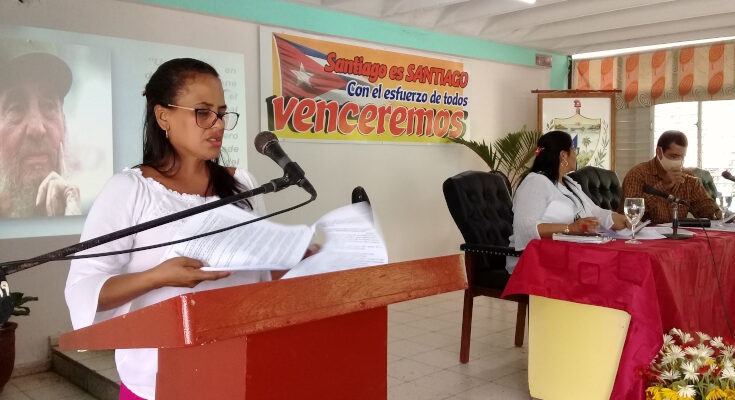As part of the measures adopted by the Administration Council of Contramaestre with a view to reducing the budget deficit applied to the municipality in this 2024, it is proposed from the framework of competence of the governmental task, to increase the effectiveness in the collection management of tax debts contracted by natural and legal persons, through superior and energetic actions of integrated fiscal control.
In this sense, the system of integrated actions highlights the fact of giving a differentiated follow-up in advising legal taxpayers, with a respective level of control of their performance, taking into account that they determine more than 80 percent of the territory’s income, as Leydis Cuello Mayan, deputy intendant in charge of attending the economy programs, said.
From the governmental and institutional point of view, in Contramaestre the debts involving natural and legal persons will be purged, added Cuello Mayan, “with which action will be taken in the event of non-compliance with tax obligations, applying in a timely manner all the legal tools provided for in the Law, such as the processing of requests for temporary or definitive withdrawal of licenses to exercise the business, migratory regulation, and the presentation of a file for judicial prosecution for the crime of tax evasion, as provided by the Central Office of the ONAT”.
According to the Vice-Intendant, it is also proposed to improve the ONAT’s work system with the PNR and the conciliations with the analysis group, the governing bodies, the prosecutor’s office and the Court to close the cycles of action with the debtors, including the transfer of inheritance assets.
“The ONAT employees will also make personalized visits to debtors to learn about their situation and specify the conduct to be followed, while at the same time, the MSMEs will be attended and controlled in a differentiated manner to learn about the results of their management and to direct the action in the face of presumed fiscal indiscipline and tax evasion behaviors”.
It is appropriate to clarify that the reduction of the fiscal deficit in Cuba is an issue of vital importance for the economic and social development of the country. A fiscal deficit occurs when government expenditures exceed its revenues, leading to an increase in public debt and a series of long-term negative repercussions.
In addition, reducing the fiscal deficit would also contribute to the country’s macroeconomic stability. A lower deficit would imply a decrease in the need for financing through debt issuance.




